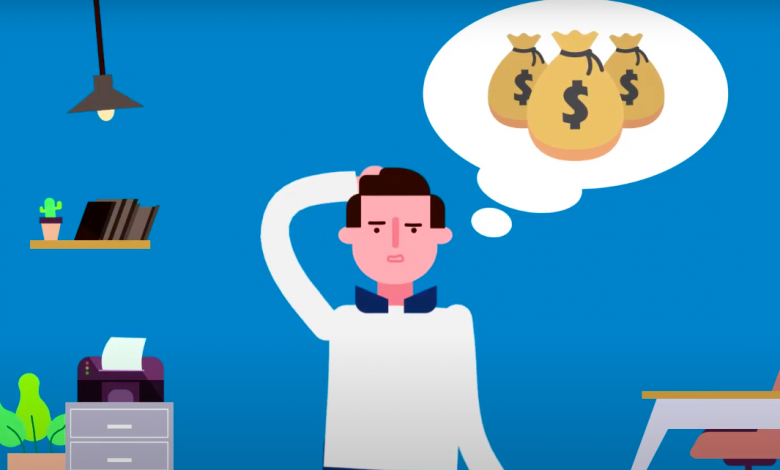
Debt isn’t something one would want to have coming out into adulthood, but it isn’t that uncommon anymore whether it be credit card balance, student loans, a new car payment or even a first-time mortgage.
People don’t like talking about it and rightfully so because who would want to share about how much they owe at a family gathering or over a dinner date? As displeasing as it sounds, debt just might not be getting talked about as much as it actually needs to be.
For those wanting to ensure that they won’t have to tackle this issue anytime in the future, here’s 5 practices that could keep you off a high figure debt.
Credit hurts
Credit cards can be the seed to an action that would form a highway to debt. The amount of people buying into the belief that credit cards help purchase unaffordable things is too high and majority of these folks are usually in debt at the same time.
The solution is pretty straightforward for this, don’t swipe when you’re purchasing and try to use what you have in a debit card or cash at hand instead. A good rule of thumb would be not buying it if you don’t have enough cash to afford it.
Leave those credit cards locked up at home when you can or simply have some old-fashioned self-control. Worst case scenario is that you could even try snipping them in half, leaving them out of sight out of mind.
Budget up
Don’t sacrifice everything in order to fulfill your impulse buying habits. Start to look out for what’s coming in to stay and what’s going out in order to find a ground for cutting down unnecessary spending.
Based on that, decide what you would consider as needs and what you forgo as wants; with some minor tweaks in your spending habits here and there, the amount that you would end up saving may actually surprise you when you don’t spend it on irrelevant purchases.
Set goals, make a plan and keep checking in based on your income; record what you spend on a daily basis by penning it down on paper or even try an app for that.
Set reminders for all those bills
Bills are a form of debt that we could never run away from. Although it’s easily for them go unnoticed and piled up, it’s extremely easy to avoid forgetting about them.
Paying off bills before their due date is a great way to stay out of debt; banks have made the process so seamless that it’s almost a no brainer to skip payments now, consider using e-banking alternatives to get your payments done and also to save time on your end.
Otherwise, you could even utilize the technology at hand to set reminders for yourself in your smartphone.
Side gigs
There’s not really a thing as “too much money”. Other than being a good habit, you don’t need to wait until you’re in debt to start the habit of earning more.
If you’ve already taken a huge cut in expenses but still find yourself unable to pay off debt, you can start one or even a few side gigs that would boost your income that much more. Whether it’s freelancing your skills, babysitting or selling used items online and offline, these are the things that could earn you some extra dough for what you owe.
Understand that you’re in it for the long haul and a good tip is to do what you’re passionate about while keeping your day job, whatever it may be. Be sure about what you’re freelancing off and identify it with your area of skills and time.
So, what if you’re already in debt? Consider refinancing
Typically used by homeowners to refinance and pay off debt such as credit card balances, they use cash-out refinance to get a mortgage for more than they owe on the home. This allows them to take the difference in cash and pay off high-interest debt with it.
Consolidating credit card debt using a cash-out refinance allows you to make fixed payments over a set period, rather than paying a revolving balance every month. As a bonus, mortgage rates are usually lower than credit card interest rates.
Before going into refinancing, it’s vital to have a plan to make sure you stay out of debt. It is usually a good idea to look at all the refinancing options you have before deciding on one that fits your needs and goals.
And to top it all off…
Your spending habits and saving habits are essentially what decides the outcome for you, but a financial advisor could help get the most out of your situation and land yourself in a better debt situation.
As ironic as it sounds, the key is to plan, and what better way to plan than to have an expert to help you with that?




Very interesting subject, regards for putting up.Blog monry
I’ve been taking cbd gummies for insomnia for a while now, and they’ve sincerely been a game-changer for stress and sleep. The excellent part? No grogginess in the morning impartial a undisturbed, mellow perception in the vanguard bed. Supplementary, they bit outstanding, opposite from some other supplements I’ve tried. I was skeptical at elementary, but after consistently using them, I can decidedly say they assistant with unwinding after a great day. If you’re looking representing a natural personality to iciness without any spooky side effects, CBD gummies are advantage trying. Just make steady you get a eminence trade name with third-party testing!
Tried these cbd products in front bed a scattering times now and they in fact work. I’m most of the time tossing and turning, but with these I ruin surpass up falling asleep fashion quicker. No weird hangover feeling in the morning either. Kinda dear, but fairly worth it when I just hunger a good sundown’s sleep.